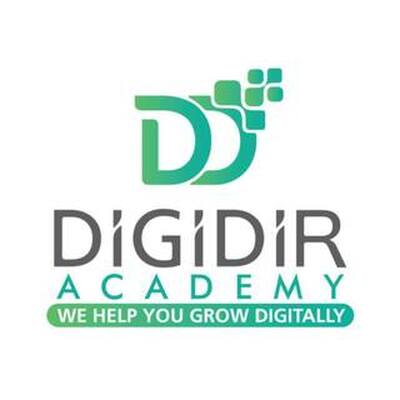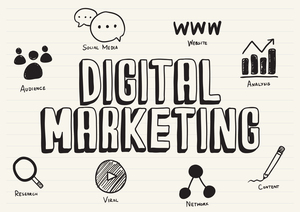Unlock Your Potential: Digital Marketing Course Online
Body
Whether you're a seasoned marketer aiming to upgrade your skills or a newcomer eager to dive into the world of online marketing, enrolling in a digital marketing course online can be a game-changer. This blog explores the benefits, key components, and considerations for choosing the right digital marketing training program.
Why Choose Digital Marketing Courses Online?
Digital marketing has revolutionized the way businesses connect with their audiences. With over 4.66 billion active internet users globally, harnessing digital platforms effectively is crucial for business growth and brand visibility. Online courses offer unparalleled flexibility and accessibility, allowing learners to study at their own pace and from any location. Here are some compelling reasons why online digital marketing courses are gaining popularity:
Flexibility and Convenience: Online courses eliminate the constraints of traditional classroom learning, allowing students to access lectures and assignments at their convenience. This flexibility is ideal for working professionals or students balancing other commitments.
Cost-Effective Learning: Online courses often cost less than their offline counterparts, making quality education accessible to a broader audience. Additionally, learners save on commuting and accommodation expenses associated with attending physical classes.
Updated Curriculum: The digital marketing landscape evolves rapidly. Online courses are frequently updated to reflect the latest industry trends, tools, and best practices, ensuring that students receive relevant and up-to-date knowledge.
Diverse Learning Resources: From video lectures and interactive quizzes to downloadable resources and live webinars, online courses offer a variety of learning materials that cater to different learning styles.
Key Components of Digital Marketing Courses
A comprehensive digital marketing course covers a wide range of topics designed to equip students with practical skills and theoretical knowledge. Here are some key components typically included in digital marketing training programs:
Search Engine Optimization (SEO): Understanding how search engines work and optimizing websites to rank higher in search engine results pages (SERPs) is fundamental to digital marketing success.
Social Media Marketing (SMM): Leveraging social media platforms like Facebook, Instagram, Twitter, and LinkedIn to engage audiences, build brand awareness, and drive traffic to websites.
Pay-Per-Click Advertising (PPC): Creating targeted advertisements on search engines and social media platforms to attract potential customers and maximize return on investment (ROI).
Email Marketing: Designing effective email campaigns to nurture leads, promote products/services, and maintain customer relationships.
Content Marketing: Crafting valuable, relevant content to attract and engage target audiences, boost brand authority, and drive organic traffic.
Analytics and Data Insights: Using tools like Google Analytics to analyze campaign performance, measure key metrics, and make data-driven decisions.
Digital Strategy and Planning: Developing comprehensive digital marketing strategies aligned with business goals, target audience insights, and market trends.
Choosing the Right Digital Marketing Course Online
With numerous online courses available, selecting the right one can be overwhelming. Here are essential factors to consider when choosing a digital marketing training program:
Accreditation and Reputation: Opt for courses offered by reputable institutions, universities, or recognized industry experts. Accredited courses often carry more weight and credibility.
Curriculum and Specializations: Evaluate the course curriculum to ensure it covers all essential digital marketing disciplines. Some courses offer specializations in areas like social media, SEO, or digital analytics, allowing you to tailor your learning experience.
Delivery Format and Learning Tools: Consider your preferred learning style—whether you prefer video lectures, interactive quizzes, case studies, or live webinars. Choose a course that offers diverse learning tools to enhance your understanding.
Student Support and Mentorship: Look for courses that provide access to knowledgeable instructors, mentorship programs, or peer support groups. Interaction with industry professionals can significantly enrich your learning experience.
Reviews and Testimonials: Read reviews and testimonials from past students to gauge their overall satisfaction with the course content, instructor expertise, and support provided.
Practical Experience and Projects: Hands-on experience is crucial in digital marketing. Choose courses that include practical assignments, real-world projects, or internships to apply theoretical knowledge in a practical setting.
Conclusion
Embarking on a digital marketing course online can open doors to exciting career opportunities and empower you to navigate the dynamic digital landscape with confidence. Whether you're aiming to advance your career, launch a business, or enhance your marketing skills, investing in digital marketing training online is a strategic decision that promises long-term rewards. Evaluate your options carefully, choose a course that aligns with your goals and aspirations, and embark on a transformative learning journey that propels your career forward in the digital age.














Comments